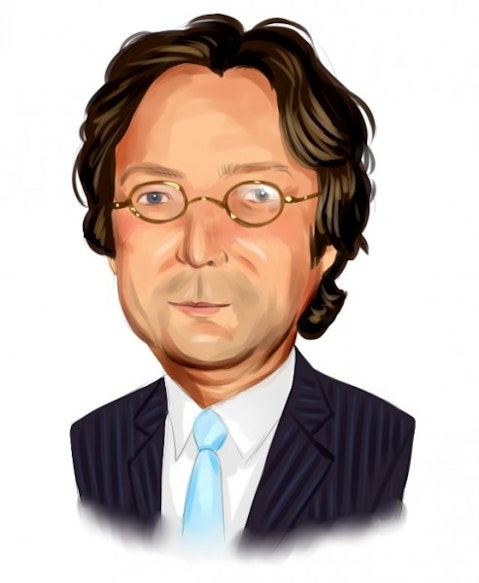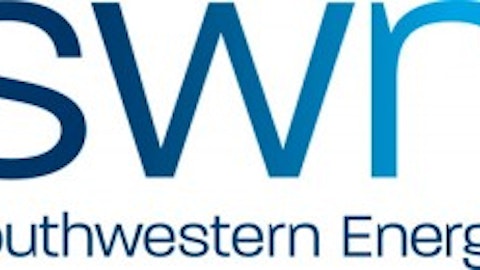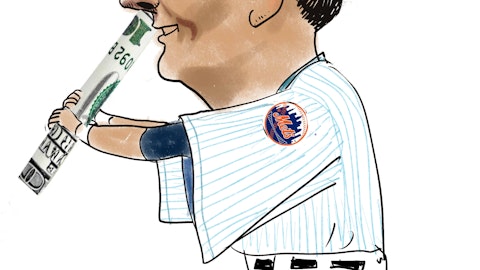Falcone Accused of Using Company Assets in Cash Crunch (NYTimes)
An investor has accused the hedge fund billionaire Philip A. Falcone of using his publicly listed company “to bail himself out” after a reaching an $18 million settlement with the Securities and Exchange Commission. In the weeks after the S.E.C. settlement last August, Mr. Falcone’s hedge fund Harbinger Capital Partners was confronted with a flurry of requests from investors to return their money, according to a complaint filed by a Harbinger Group shareholder, Haverhill Retirement System. …By doing so, “Falcone effectively used Company assets to bail himself out of a personal financial crisis,” the complaint said.

Brevan Howard Vet Stonberg To Winton (Finalternatives)
A former Brevan Howard Asset Management partner has joined Winton Capital Management. Stephen Stonberg was named a senior adviser at the quantitative hedge fund, Wealth Manager reports. He joins the firm from Schroders in New York, where he has served as a consultant since leaving his post as head of product management for alternatives at Credit Suisse Group AG (NYSE:CS) last year. Prior to joining the bank in 2011, Stonberg spent five years at Brevan, where he was head of its U.S. office.
John Paulson’s Journey, From Subprime Bets to Dutch Phone Calls (WSJ)
After talking up the prospects for the European telecom sector, billionaire investor John Paulson is putting his money where his mouth is. The hedge-fund manager has emerged as a shareholder in Dutch operator KPN, underscoring that investors are betting on further consolidation of Europe’s fragmented telecom market. Mr. Paulson’s investment firm, Paulson & Co., held a 4.54% stake in the Dutch company as of Monday, according to a regulatory filing published Thursday by Dutch financial-markets regulator AFM. It was the hedge fund’s first notification as a KPN shareholder.
Fink vs Icahn: Who’s right on corporate cash? (CNBC)
BlackRock, Inc. (NYSE:BLK) Chief Larry Fink thinks companies should focus more on long-term results instead of boosting dividends or buying back stock to appease short-term interests, such as those demanded by activist investors. Billionaire corporate agitator Carl Icahn thinks too many businesses are run by incompetents who waste shareholder money and need to focus on short-term improvements. Who’s right? “Both” is the short—if obvious—answer from observers. Corporate chief executive officers generally side with Fink on expanding a business for the long term.
Palladyne Accused in Suit of Laundering Money for Qaddafi (Bloomberg)
Dutch hedge fund Palladyne International Asset Management BV was sued in the U.S. for as much as $500 million by a former executive who claims the company helped Libya’s Qaddafi regime launder money in exchange for kickbacks. The Amsterdam-based firm’s main purpose was the “laundering and concealment of funds illicitly siphoned” from the regime of Muammar Qaddafi, who was deposed and killed in a 2011 revolution, Dan Friedman, the former employee, said in a complaint filed in U.S. District Court in New Haven, Connecticut, on March 25. The firm denied the claims.
Not What You’d Expect: David Einhorn’s Focus on Empathy (InsidePhilanthropy)
David Einhorn is one of those Wall St. philanthropists who may fly below most people’s radar, but the Greenlight Capital founder, worth $1.2 billion, is a significant giver with an interesting, and perhaps slightly unusual philanthropic mission—“to inspire a movement of empathetic citizens who, with mutual respect and understanding, ultimately build an increasingly civil society.” We love this goal, especially coming from a hedge fund guy who hasn’t shied away from filing lawsuits to get his way, who famously beat up on Green Mountain Coffee Roasters Inc. (NASDAQ:GMCR) after shorting its stock, and who called on Steve Ballmer to resign in 2011. There’s even a term for what happens to companies after Einhorn shorts them and starts his bad-mouthing: they get “Einhorned.”
Rough year for macro funds (CNBC)





